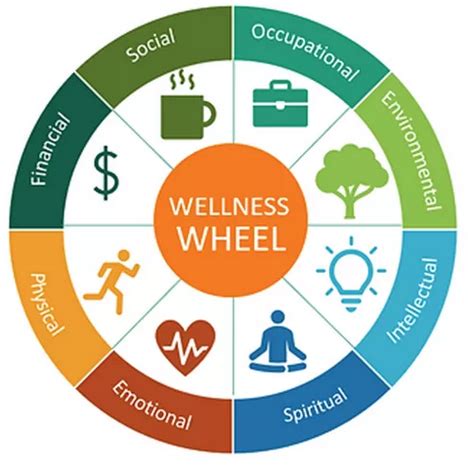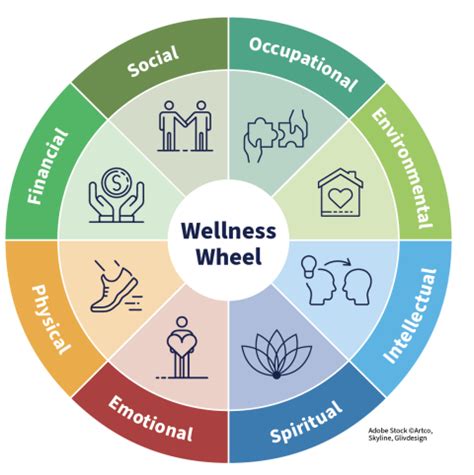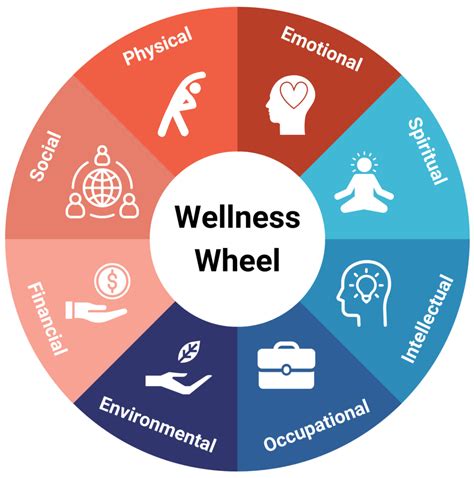Men’s mental health in older age is an often-overlooked aspect of overall well-being. As men age, they face unique challenges that can impact their mental health, from the stress of retirement to physical health issues and the loss of social connections. Understanding these challenges is crucial for ensuring a fulfilling and healthy life in later years. In this comprehensive guide, we explore common mental health concerns faced by elderly men, the importance of social engagement, effective strategies for managing stress, and the vital role of physical activity and nutrition. By addressing these aspects, we can foster a more open conversation and provide support for aging men’s mental health.
ujocis.net will explore this topic comprehensively.
1. Understanding Men’s Mental Health in Older Age
As men age, mental health becomes a crucial, yet frequently overlooked, component of their overall well-being. Elderly men are especially susceptible to mental health challenges, impacted by various life transitions. These transitions include retirement, declining physical health, the loss of loved ones, and altered social roles. Such changes can result in feelings of isolation, depression, anxiety, or a sense of lacking purpose.
Although mental health conditions can present differently in older men than in younger individuals, early detection is crucial. Many older men may attribute their symptoms to the natural aging process or avoid seeking help due to societal stigmas surrounding mental health, particularly the fear of appearing vulnerable or dependent.
Recognizing the equal importance of mental and physical health in older age is paramount. Early intervention in addressing mental health concerns can greatly enhance an individual’s quality of life, fostering emotional resilience and a positive outlook. Proactively discussing and normalizing mental health care among elderly men is crucial for mitigating the risk of enduring mental health issues.

2. Common Mental Health Challenges Faced by Elderly Men
Elderly men often grapple with unique mental health challenges that can profoundly impact their quality of life. Depression is a prevalent issue, often stemming from significant life changes like retirement, the loss of a spouse, or declining physical capabilities. These transitions can result in feelings of isolation and a sense of purposelessness, which, if left unchecked, may deteriorate with time.
Anxiety is another widespread concern, often arising from health issues, financial anxieties, or the fear of losing independence. Cognitive decline, encompassing memory loss and conditions like dementia, can also negatively affect mental well-being, further amplifying feelings of frustration and confusion.
Societal stigmas often prevent elderly men from seeking help for mental health issues, as they may view it as a sign of weakness. Furthermore, some symptoms can be misconstrued as normal signs of aging, delaying diagnosis and treatment. Early identification of these challenges is paramount for delivering appropriate care and enhancing the overall well-being of elderly men.

3. Importance of Social Engagement for Mental Well-Being
For elderly men, staying socially engaged is vital to their mental health. As men age, their social networks often shrink due to retirement, the loss of loved ones, or physical limitations, which can lead to heightened feelings of loneliness and isolation. Strong social connections can combat these negative feelings and provide emotional support during difficult periods.
Connecting with family, friends, or community groups provides a sense of belonging and purpose, fostering positive emotions. This social interaction can alleviate symptoms of depression and anxiety. Engaging in activities such as group hobbies, volunteering, or attending community events helps elderly men stay mentally sharp and emotionally fulfilled.
Furthermore, social connections foster open dialogue about mental health, enabling older men to share their concerns and seek support without feeling isolated. This sense of community can profoundly enhance their outlook on life, reduce stress, and promote overall mental well-being, emphasizing the significance of maintaining social engagement in later years.

4. Effective Strategies for Managing Stress and Anxiety
For elderly men, maintaining mental well-being hinges on effectively managing stress and anxiety. Life transitions, such as retirement, health changes, or the loss of loved ones, can trigger heightened stress and anxiety. Fortunately, there are proven methods to ease these feelings.
Practicing mindfulness and relaxation techniques, such as meditation, deep breathing, or yoga, can significantly reduce anxiety by promoting calmness and focus. These activities help the mind and body relax, making it easier to manage stress in everyday situations.
A daily routine offers structure and control, providing elderly men with a sense of security. Predictable schedules reduce the uncertainty that often causes stress, helping them feel more grounded and stable in their daily lives.
Regular physical activity is another crucial element. Gentle exercises such as walking, swimming, or stretching not only enhance physical well-being but also trigger the release of endorphins, naturally boosting mood and alleviating stress.
Furthermore, seeking support through therapy or counseling provides a safe environment for expressing anxieties and developing coping strategies. Early intervention in addressing these emotions can help prevent the escalation of mental health issues, promoting overall emotional well-being.
5. Role of Physical Activity in Enhancing Mental Health
Physical activity is crucial for enhancing the mental health of elderly men. Regular exercise benefits both physical and emotional well-being. Activities like walking, swimming, or gentle strength training can alleviate symptoms of anxiety and depression, making it easier for older men to navigate life’s challenges.
Exercise triggers the release of endorphins, commonly known as “feel-good” hormones. These endorphins boost mood and alleviate stress. Additionally, maintaining an active lifestyle enhances cognitive function, strengthens memory, and promotes overall brain health, mitigating the risk of cognitive decline associated with aging.
Group exercise or fitness classes can offer elderly men a chance to connect with peers, combating feelings of loneliness. These social interactions foster a sense of community and belonging, which are crucial for mental well-being.
Adding physical activity to your daily life can be as easy as going for a brisk walk, tending to your garden, or joining a local sports team. In the end, staying active is a powerful way to improve mental health and enhance the quality of life as you age.
6. Nutritional Tips for Supporting Mental Well-Being
A well-balanced diet is crucial for supporting the mental well-being of elderly men. The right nutrients can significantly impact mood, cognitive function, and overall mental health. It is essential to include a variety of foods that provide the necessary vitamins and minerals for optimal mental well-being.
Omega-3 fatty acids, abundant in foods such as salmon, walnuts, and flaxseeds, have been associated with enhanced mood and cognitive function. Incorporating these into one’s diet may contribute to alleviating symptoms of depression and anxiety.
Furthermore, a diet abundant in fruits and vegetables delivers antioxidants that fight oxidative stress and inflammation within the brain. Dark leafy greens, berries, and citrus fruits are especially advantageous in this regard.
Whole grains, such as oats and brown rice, can help stabilize blood sugar levels, providing consistent energy and preventing mood swings.
Staying hydrated is equally important; dehydration can negatively affect cognitive function and mood.
Finally, limiting processed foods high in sugar and unhealthy fats can reduce the risk of mood disorders. By focusing on a nutrient-dense diet, elderly men can enhance their mental health and overall well-being, promoting a more positive outlook on life.
7. Importance of Regular Mental Health Check-Ups
Regular mental health check-ups are crucial for older men to preserve their overall well-being and proactively address any developing mental health concerns. As men age, they often encounter life changes that can affect their mental health, such as retirement, health issues, or the loss of loved ones. These transitions can contribute to anxiety, depression, or cognitive decline if not adequately monitored and managed.
Regular mental health checkups offer elderly men a platform to share their thoughts and experiences with a healthcare professional. These assessments can detect early warning signs of mental health issues, enabling prompt intervention and support.
Furthermore, mental health screenings foster open discussions about emotional well-being, contributing to the reduction of stigma surrounding mental health concerns. This proactive strategy encourages elderly men to prioritize their mental health, mirroring the importance they place on their physical health.
Regular mental health check-ups benefit elderly men in multiple ways. They not only promote individual well-being but also cultivate a culture of understanding and acceptance, ultimately contributing to a higher quality of life as they face the challenges of aging.
8. Community Resources and Support Groups
Community resources and support groups are essential in promoting the mental well-being of elderly men. These resources offer a safe and supportive setting where individuals can connect with others who share similar challenges, fostering a sense of belonging and understanding.
Local organizations, such as senior centers or community health centers, frequently offer mental health programs designed specifically for older adults. These programs may include workshops on coping strategies, stress management, and mindfulness techniques, providing elderly men with the resources they need to manage their mental health challenges. Moreover, many community centers host regular social events, enabling seniors to connect and build friendships, which can effectively alleviate feelings of loneliness.
Elderly men can find a safe and supportive space, either in person or online, to share their experiences and feelings. Support groups offer emotional support and practical advice for navigating issues such as grief, loneliness, or anxiety. These groups are often facilitated by professionals, creating a safe and constructive environment for participants.
These community resources offer a twofold benefit for elderly men: they promote mental well-being and encourage active participation in their own health. By engaging in these programs, they can foster connections and build a strong support system, which is essential for navigating the challenges of later life.
9. Encouraging Open Conversations About Mental Health
Open conversations about mental health are essential to dismantle the stigma surrounding these issues among elderly men. Many men may be reluctant to share their feelings or seek assistance because of societal pressures that value self-sufficiency and emotional restraint. However, creating a space where mental health can be openly discussed can greatly enhance emotional well-being.
Family members and caregivers are crucial in starting these conversations. By showing empathy and understanding, they can create a safe environment where elderly men feel comfortable sharing their thoughts and feelings without fear of being judged. Active listening and validating their experiences are essential. It’s vital to emphasize that seeking help is a sign of strength, not weakness.
Community organizations play a vital role in raising mental health awareness by offering workshops, seminars, and support groups. Through the provision of resources and information, they empower individuals to openly discuss their mental health challenges and seek help when necessary.
Open conversations about mental health can have a significant impact on elderly men, leading to greater emotional resilience and improved overall well-being. By normalizing these discussions, we can empower men to actively manage their mental health and cultivate a supportive environment where they feel comfortable seeking help.
Prioritizing men’s mental health in older age is essential for overall well-being. By understanding common challenges, engaging in physical activity, maintaining a nutritious diet, and fostering open conversations, elderly men can enhance their mental resilience. Utilizing community resources and regular check-ups further supports their journey toward a healthier, more fulfilling life, promoting positive mental health outcomes.
ujocis.net

